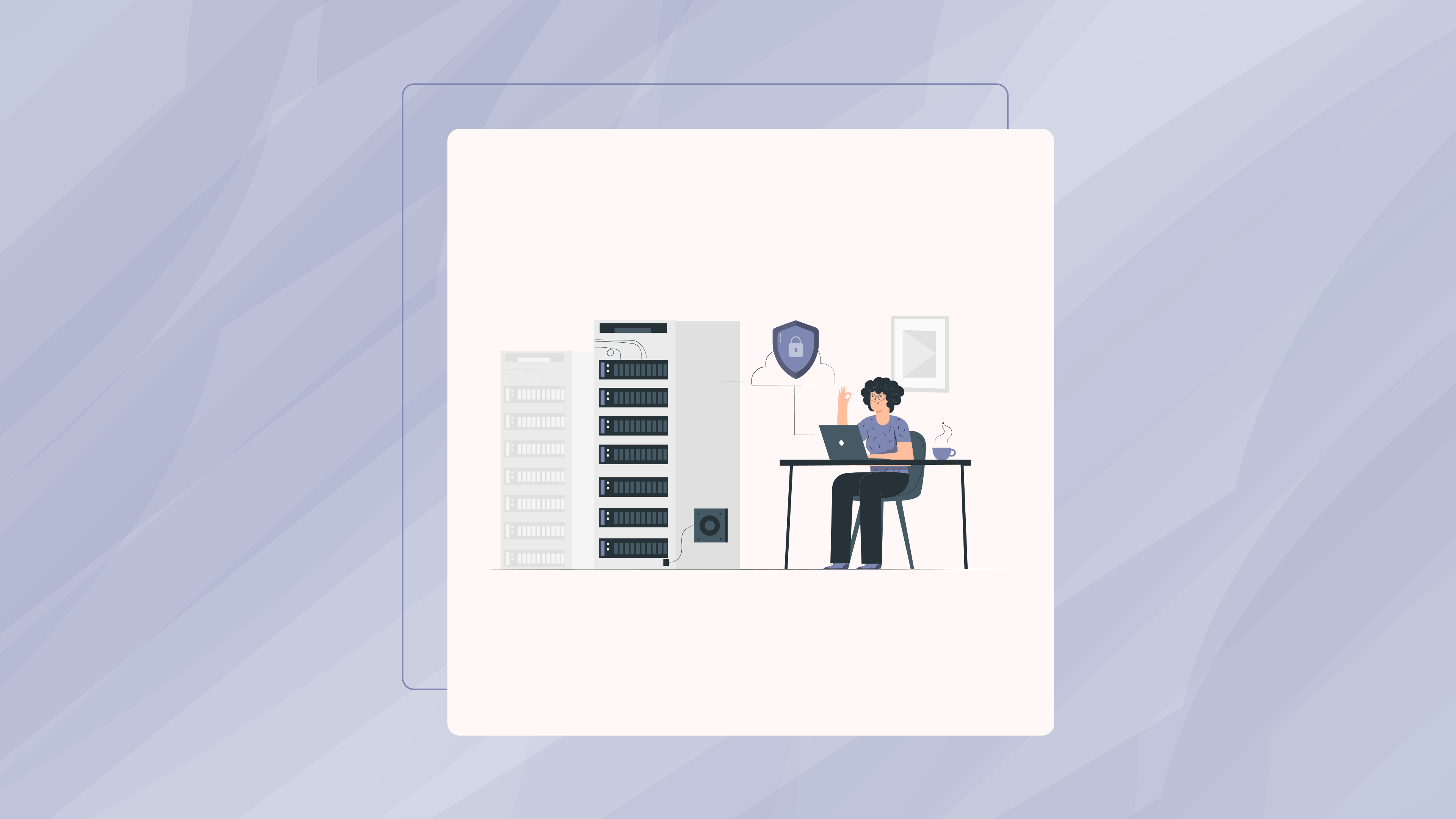BlockChain
Blockchain in e Governance: How Blockchain is Enabling Secure, Paperless Governance
Blockchain in e Governance: How Blockchain is Enabling Secure, Paperless Governance
Blockchain in e Governance: How Blockchain is Enabling Secure, Paperless Governance
Blockchain in e Governance: How Blockchain is Enabling Secure, Paperless Governance
Oct 22, 2024



In today’s digital age, technological advancements are reshaping almost every sector, including governance. One of the most promising technologies driving this transformation is blockchain. Initially designed to support cryptocurrencies like Bitcoin, blockchain has evolved to offer solutions across a wide array of industries, including government operations, where it's making processes more secure, transparent, and efficient. This blog explores the role of blockchain in e-governance, its potential applications, and how it could redefine the future of government services.
What is Blockchain Technology?
At its core, blockchain is a distributed ledger technology that enables multiple parties to securely record and verify transactions without the need for intermediaries like banks or government agencies. Here’s how it works:
Decentralization: Blockchain operates on a decentralized network, where each node (computer) holds a copy of the entire blockchain. This makes it nearly impossible for any single entity to manipulate the data.
Blocks: Transactions are grouped into blocks, each containing a unique cryptographic hash, linking it to the previous block, creating a secure chain.
Consensus Mechanisms: To add new blocks, participants in the network must agree on the validity of transactions. Methods like Proof of Work (PoW) and Proof of Stake (PoS) help ensure consensus.
Immutability: Once a block is added, altering the data would require modifying all subsequent blocks, which is computationally prohibitive, ensuring the data remains tamper-proof.
The Role of Blockchain in E-Governance
Governments worldwide are exploring how blockchain technology can enhance public sector operations. Below are some of the ways blockchain is making a significant impact:
1. Transparency and Trust
One of the primary challenges in traditional governance is the lack of transparency, which often leads to citizen distrust. Blockchain offers a solution by creating a decentralized and immutable ledger where every transaction or action is recorded and viewable by stakeholders. This increased visibility helps build trust as citizens can monitor government activities, such as expenditure and policy implementation, in near real-time.
2. Secure Identity Management
In e-governance, managing citizens' identities securely is critical to preventing fraud and identity theft. Blockchain provides a secure identity management system where personal information is stored and accessed via cryptographic keys. This reduces reliance on centralized databases that are prone to breaches, ensuring data privacy and security.
3. Efficient Supply Chain Management
Governments handle the distribution of goods and services, such as public funds, food, and medicines. Blockchain can streamline supply chain management by ensuring transparency and tracking the movement of resources. This allows governments to efficiently allocate goods and subsidies to the right beneficiaries, ensuring accountability.
4. Smart Contracts for Governance
Smart contracts are self-executing contracts with predefined terms coded into them. Governments can use these contracts to automate processes like budget allocation, procurement, and contract enforcement. Since blockchain ensures that smart contracts are executed as written, this minimizes the risk of fraud and corruption.
5. Data Integrity and Record-Keeping
Governments generate vast amounts of data daily. Blockchain can secure this data by ensuring that once entered into the system, it cannot be altered without consensus. This guarantees the integrity and accuracy of important records such as land registries, voting data, and legal documents.
6. Cross-Border Collaboration
Blockchain’s decentralized nature allows for efficient cross-border collaboration. Governments can use interoperable blockchain networks to securely share information for areas like immigration, disaster relief, and global trade, leading to improved cooperation and governance across nations.
Real-World Implementations of Blockchain in Government
Several countries have already taken significant steps in integrating blockchain into their government operations. Here are some notable examples:
Estonia’s E-Residency Program: Estonia is a leader in blockchain-based e-governance. Its E-Residency program allows individuals worldwide to become digital residents, leveraging blockchain to ensure secure and authentic digital identities for conducting business remotely.
Dubai’s Blockchain Strategy: Dubai has launched an ambitious initiative to become the world’s first blockchain-powered government. By implementing blockchain across sectors like healthcare and transportation, Dubai aims to enhance service efficiency and security.
Georgia’s Blockchain Land Registry: Georgia has adopted blockchain to secure land titles, making the land registry process more transparent and preventing fraudulent claims.
Singapore’s TradeTrust: Singapore’s TradeTrust uses blockchain to verify trade documents, improving transparency in the global supply chain and reducing fraud.
West Virginia’s Blockchain-Based Voting: In the U.S., West Virginia introduced blockchain-based voting for overseas military personnel, providing a secure, transparent, and accessible system to boost voter participation.
The Future of Blockchain in E-Governance
As blockchain technology continues to evolve, its applications in e-governance are expected to expand. Key trends that are likely to shape the future include:
Increased Interoperability: Blockchain networks will likely become more interoperable, allowing governments to collaborate seamlessly across borders and share data securely.
Sustainable Consensus Mechanisms: New consensus methods, such as Proof of Stake, are being developed to reduce the environmental impact of blockchain, making the technology more sustainable.
Wider Integration: As blockchain matures, it will likely integrate more deeply into daily government operations, becoming an essential tool for managing data, processes, and transactions efficiently.
However, governments must address challenges like the high costs of implementation, technical complexity, and the need for a supportive legal framework to ensure blockchain-based systems are governed effectively.
Conclusion
Blockchain technology holds immense potential to revolutionize e-governance by making government operations more transparent, secure, and efficient. By adopting blockchain, governments can build trust with citizens, streamline processes, and reduce the risk of corruption. Although there are hurdles to overcome, blockchain's continued evolution could lead to more accountable and citizen-centric governance systems in the future.
As more governments embrace blockchain, we are likely to witness a new era of digital governance where transparency and efficiency take center stage.
In today’s digital age, technological advancements are reshaping almost every sector, including governance. One of the most promising technologies driving this transformation is blockchain. Initially designed to support cryptocurrencies like Bitcoin, blockchain has evolved to offer solutions across a wide array of industries, including government operations, where it's making processes more secure, transparent, and efficient. This blog explores the role of blockchain in e-governance, its potential applications, and how it could redefine the future of government services.
What is Blockchain Technology?
At its core, blockchain is a distributed ledger technology that enables multiple parties to securely record and verify transactions without the need for intermediaries like banks or government agencies. Here’s how it works:
Decentralization: Blockchain operates on a decentralized network, where each node (computer) holds a copy of the entire blockchain. This makes it nearly impossible for any single entity to manipulate the data.
Blocks: Transactions are grouped into blocks, each containing a unique cryptographic hash, linking it to the previous block, creating a secure chain.
Consensus Mechanisms: To add new blocks, participants in the network must agree on the validity of transactions. Methods like Proof of Work (PoW) and Proof of Stake (PoS) help ensure consensus.
Immutability: Once a block is added, altering the data would require modifying all subsequent blocks, which is computationally prohibitive, ensuring the data remains tamper-proof.
The Role of Blockchain in E-Governance
Governments worldwide are exploring how blockchain technology can enhance public sector operations. Below are some of the ways blockchain is making a significant impact:
1. Transparency and Trust
One of the primary challenges in traditional governance is the lack of transparency, which often leads to citizen distrust. Blockchain offers a solution by creating a decentralized and immutable ledger where every transaction or action is recorded and viewable by stakeholders. This increased visibility helps build trust as citizens can monitor government activities, such as expenditure and policy implementation, in near real-time.
2. Secure Identity Management
In e-governance, managing citizens' identities securely is critical to preventing fraud and identity theft. Blockchain provides a secure identity management system where personal information is stored and accessed via cryptographic keys. This reduces reliance on centralized databases that are prone to breaches, ensuring data privacy and security.
3. Efficient Supply Chain Management
Governments handle the distribution of goods and services, such as public funds, food, and medicines. Blockchain can streamline supply chain management by ensuring transparency and tracking the movement of resources. This allows governments to efficiently allocate goods and subsidies to the right beneficiaries, ensuring accountability.
4. Smart Contracts for Governance
Smart contracts are self-executing contracts with predefined terms coded into them. Governments can use these contracts to automate processes like budget allocation, procurement, and contract enforcement. Since blockchain ensures that smart contracts are executed as written, this minimizes the risk of fraud and corruption.
5. Data Integrity and Record-Keeping
Governments generate vast amounts of data daily. Blockchain can secure this data by ensuring that once entered into the system, it cannot be altered without consensus. This guarantees the integrity and accuracy of important records such as land registries, voting data, and legal documents.
6. Cross-Border Collaboration
Blockchain’s decentralized nature allows for efficient cross-border collaboration. Governments can use interoperable blockchain networks to securely share information for areas like immigration, disaster relief, and global trade, leading to improved cooperation and governance across nations.
Real-World Implementations of Blockchain in Government
Several countries have already taken significant steps in integrating blockchain into their government operations. Here are some notable examples:
Estonia’s E-Residency Program: Estonia is a leader in blockchain-based e-governance. Its E-Residency program allows individuals worldwide to become digital residents, leveraging blockchain to ensure secure and authentic digital identities for conducting business remotely.
Dubai’s Blockchain Strategy: Dubai has launched an ambitious initiative to become the world’s first blockchain-powered government. By implementing blockchain across sectors like healthcare and transportation, Dubai aims to enhance service efficiency and security.
Georgia’s Blockchain Land Registry: Georgia has adopted blockchain to secure land titles, making the land registry process more transparent and preventing fraudulent claims.
Singapore’s TradeTrust: Singapore’s TradeTrust uses blockchain to verify trade documents, improving transparency in the global supply chain and reducing fraud.
West Virginia’s Blockchain-Based Voting: In the U.S., West Virginia introduced blockchain-based voting for overseas military personnel, providing a secure, transparent, and accessible system to boost voter participation.
The Future of Blockchain in E-Governance
As blockchain technology continues to evolve, its applications in e-governance are expected to expand. Key trends that are likely to shape the future include:
Increased Interoperability: Blockchain networks will likely become more interoperable, allowing governments to collaborate seamlessly across borders and share data securely.
Sustainable Consensus Mechanisms: New consensus methods, such as Proof of Stake, are being developed to reduce the environmental impact of blockchain, making the technology more sustainable.
Wider Integration: As blockchain matures, it will likely integrate more deeply into daily government operations, becoming an essential tool for managing data, processes, and transactions efficiently.
However, governments must address challenges like the high costs of implementation, technical complexity, and the need for a supportive legal framework to ensure blockchain-based systems are governed effectively.
Conclusion
Blockchain technology holds immense potential to revolutionize e-governance by making government operations more transparent, secure, and efficient. By adopting blockchain, governments can build trust with citizens, streamline processes, and reduce the risk of corruption. Although there are hurdles to overcome, blockchain's continued evolution could lead to more accountable and citizen-centric governance systems in the future.
As more governments embrace blockchain, we are likely to witness a new era of digital governance where transparency and efficiency take center stage.
In today’s digital age, technological advancements are reshaping almost every sector, including governance. One of the most promising technologies driving this transformation is blockchain. Initially designed to support cryptocurrencies like Bitcoin, blockchain has evolved to offer solutions across a wide array of industries, including government operations, where it's making processes more secure, transparent, and efficient. This blog explores the role of blockchain in e-governance, its potential applications, and how it could redefine the future of government services.
What is Blockchain Technology?
At its core, blockchain is a distributed ledger technology that enables multiple parties to securely record and verify transactions without the need for intermediaries like banks or government agencies. Here’s how it works:
Decentralization: Blockchain operates on a decentralized network, where each node (computer) holds a copy of the entire blockchain. This makes it nearly impossible for any single entity to manipulate the data.
Blocks: Transactions are grouped into blocks, each containing a unique cryptographic hash, linking it to the previous block, creating a secure chain.
Consensus Mechanisms: To add new blocks, participants in the network must agree on the validity of transactions. Methods like Proof of Work (PoW) and Proof of Stake (PoS) help ensure consensus.
Immutability: Once a block is added, altering the data would require modifying all subsequent blocks, which is computationally prohibitive, ensuring the data remains tamper-proof.
The Role of Blockchain in E-Governance
Governments worldwide are exploring how blockchain technology can enhance public sector operations. Below are some of the ways blockchain is making a significant impact:
1. Transparency and Trust
One of the primary challenges in traditional governance is the lack of transparency, which often leads to citizen distrust. Blockchain offers a solution by creating a decentralized and immutable ledger where every transaction or action is recorded and viewable by stakeholders. This increased visibility helps build trust as citizens can monitor government activities, such as expenditure and policy implementation, in near real-time.
2. Secure Identity Management
In e-governance, managing citizens' identities securely is critical to preventing fraud and identity theft. Blockchain provides a secure identity management system where personal information is stored and accessed via cryptographic keys. This reduces reliance on centralized databases that are prone to breaches, ensuring data privacy and security.
3. Efficient Supply Chain Management
Governments handle the distribution of goods and services, such as public funds, food, and medicines. Blockchain can streamline supply chain management by ensuring transparency and tracking the movement of resources. This allows governments to efficiently allocate goods and subsidies to the right beneficiaries, ensuring accountability.
4. Smart Contracts for Governance
Smart contracts are self-executing contracts with predefined terms coded into them. Governments can use these contracts to automate processes like budget allocation, procurement, and contract enforcement. Since blockchain ensures that smart contracts are executed as written, this minimizes the risk of fraud and corruption.
5. Data Integrity and Record-Keeping
Governments generate vast amounts of data daily. Blockchain can secure this data by ensuring that once entered into the system, it cannot be altered without consensus. This guarantees the integrity and accuracy of important records such as land registries, voting data, and legal documents.
6. Cross-Border Collaboration
Blockchain’s decentralized nature allows for efficient cross-border collaboration. Governments can use interoperable blockchain networks to securely share information for areas like immigration, disaster relief, and global trade, leading to improved cooperation and governance across nations.
Real-World Implementations of Blockchain in Government
Several countries have already taken significant steps in integrating blockchain into their government operations. Here are some notable examples:
Estonia’s E-Residency Program: Estonia is a leader in blockchain-based e-governance. Its E-Residency program allows individuals worldwide to become digital residents, leveraging blockchain to ensure secure and authentic digital identities for conducting business remotely.
Dubai’s Blockchain Strategy: Dubai has launched an ambitious initiative to become the world’s first blockchain-powered government. By implementing blockchain across sectors like healthcare and transportation, Dubai aims to enhance service efficiency and security.
Georgia’s Blockchain Land Registry: Georgia has adopted blockchain to secure land titles, making the land registry process more transparent and preventing fraudulent claims.
Singapore’s TradeTrust: Singapore’s TradeTrust uses blockchain to verify trade documents, improving transparency in the global supply chain and reducing fraud.
West Virginia’s Blockchain-Based Voting: In the U.S., West Virginia introduced blockchain-based voting for overseas military personnel, providing a secure, transparent, and accessible system to boost voter participation.
The Future of Blockchain in E-Governance
As blockchain technology continues to evolve, its applications in e-governance are expected to expand. Key trends that are likely to shape the future include:
Increased Interoperability: Blockchain networks will likely become more interoperable, allowing governments to collaborate seamlessly across borders and share data securely.
Sustainable Consensus Mechanisms: New consensus methods, such as Proof of Stake, are being developed to reduce the environmental impact of blockchain, making the technology more sustainable.
Wider Integration: As blockchain matures, it will likely integrate more deeply into daily government operations, becoming an essential tool for managing data, processes, and transactions efficiently.
However, governments must address challenges like the high costs of implementation, technical complexity, and the need for a supportive legal framework to ensure blockchain-based systems are governed effectively.
Conclusion
Blockchain technology holds immense potential to revolutionize e-governance by making government operations more transparent, secure, and efficient. By adopting blockchain, governments can build trust with citizens, streamline processes, and reduce the risk of corruption. Although there are hurdles to overcome, blockchain's continued evolution could lead to more accountable and citizen-centric governance systems in the future.
As more governments embrace blockchain, we are likely to witness a new era of digital governance where transparency and efficiency take center stage.
Schedule your Free Demo
Schedule your Free Demo
Empower Your Organization’s Growth with the Future of Blockchain Technology
Empower Your Organization’s Growth with the Future of Blockchain Technology
Book a Demo



